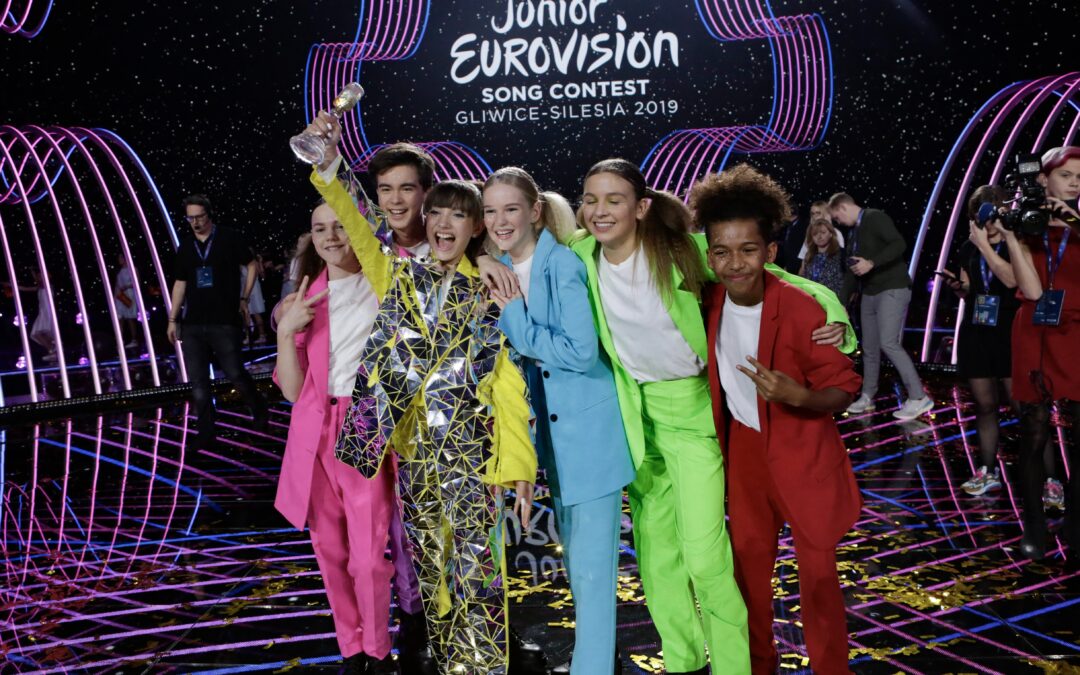The advisory council of Poland’s state broadcaster, TVP, has opposed its continued participation in the organisation of the Junior Eurovision Song Contest, saying that it treats children “objectively” and as a “plaything for adults”.
Poland has won the last two editions of the competition, which is open to children aged between nine and 14, and is therefore due to host it for the second time in a row in November, with TVP the broadcasting partner.
But a resolution by the advisory council says that Junior Eurovision contravenes the Polish broadcasting act, which prohibits programmes “endangering the physical, psychological or moral development of minors”, reports news website Gazeta.pl
“This protection should not be limited only to reducing the emission of content that may have a negative impact, but should also take into account the the impact that these programmes have on children who participate in them,” argues the council.
Rather than continuing to organise and promote the European initiative, the council proposes that TVP should produce “its own programme promoting artistic activity of children and young people in accordance with the broadcasting act”.
The presidium of the council has requested a meeting with the station’s bosses, including its CEO Jacek Kurski, to discuss their concerns.
“We want to talk to the television board about this, as we think this format treats children in an objective manner and has little to do with the mission of promoting culture,” advisory council member Barbara Bubula, a former MP from the ruling conservative Law and Justice (PiS) party, told Gazeta.pl.
Junior Eurovision participants are “treated as an object of pop-culture, as a plaything for adults”, which is a “dangerous trend”, she added.
But not all council members agreed. Łukasz Abgarowicz, previously an MP and senator representing the centrist opposition Civic Platform (PO), said the resolution was typical of PiS’s approach to culture and education.
“This is not a festival of some religious or patriotic song, but opens young people up to ‘outsiders’, the culture of other societies, and builds curiosity and a supranational community of children,” he told Gazeta.pl.
Last year, Poland became the first country to record back-to-back wins in Junior Eurovision, when 12-year-old Viki Gabor was victorious in Gliwice with her song “Superhero”. In 2018, Roksana Węgiel took top spot with “Anyone I Want to Be”.
TVP has been an enthusiastic partner in Poland’s recent success in the competition. Launching the logo and slogan for this year’s contest in May, the then acting head of the corporation, Maciej Łopiński, said that the broadcaster was pleased to again be hosting it.
“The events of recent months have shown us all the values of unity, goodwill and cooperation. Great musical events like the Junior Eurovision Song Contest have value because they boost optimism and hope,” he said.
The 2020 contest, the 18th edition, will be hosted in Warsaw but with the other 12 competitors performing their entries in studios in their own countries due to the coronavirus pandemic.
In the adult version of the contest, Poland’s finest hour came in its debut in 1994, when Edyta Górniak came second.
This year is not the first time that Eurovision has drawn concern from conservative figures in Poland. Last year, Kurski himself, as head of TVP, criticised the record label Universal Polska after it cut 12 seconds from the Polish entry’s video because it featured a Christian cross. Universal claimed that the decision was based on its interpretation of Eurovision’s rules.
In 2014, Kurski, then an MEP, joined PiS chairman Jarosław Kaczyński in condemning the “tastelessness” of that year’s winner, drag queen Conchita Wurst.
“There are very alarming things going on in Europe that point to its decadence and downturn, and we should reverse this trend,” Kaczyński said, quoted by Dziennik.pl.
Main image credit: Junior Eurovision/Thomas Hanses

Ben Koschalka is a translator, lecturer, and senior editor at Notes from Poland. Originally from Britain, he has lived in Kraków since 2005.




















